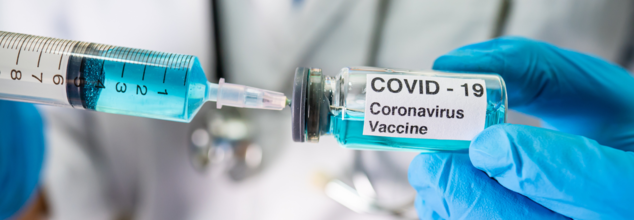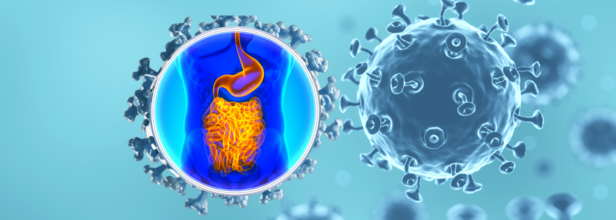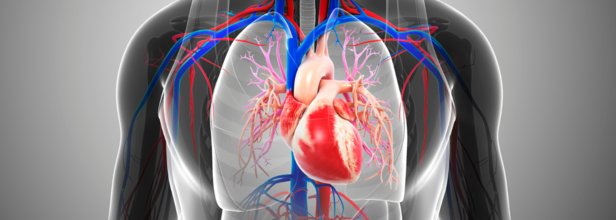- Health Conditions A-Z
- Health & Wellness
- Nutrition
- Fitness
- Health News
- Ayurveda
- Videos
- Medicine A-Z
- Parenting
- Web Stories
New Pancreatic Cancer Vaccine Could Possibly Stop Its Return

Credits: Canva
A new study published in the journal Nature, titled: RMA vaccine induces long-lived anti-tumour T cells in pancreatic cancer, highlights the potential of a personalized pancreatic cancer vaccine. This will prevent the disease from returning. The cause of concern is that the trial involved only 16 patients, the findings have however, generated optimism for a cancer which is more often than not deadly.
Pancreatic cancer is aggressive in nature and is also difficult to treat. So, when this new research suggests a possibility of a vaccine that could extend survival, it demands attention. However, the progress in this treatment is slow and it needs more urgent attention. The only way to make significant strides is through continuous investment in the research until it leads to a big breakthrough.
But, why is pancreatic cancer so hard to treat?
There have been many advancements in the field of cancer studies, despite it all, pancreatic cancer remains one of the most lethal types. It has a five-year survival rate that stands at just 13%. This makes it the third deadliest cancer in the US, right behind lung and colon cancer/
One of the biggest concern is the lack of early detecting techniques. This is also because most of the symptoms go unnoticed, and there are no routine tests. By the time someone gets this cancer diagnosed, it has already started to spread to nearby organs, and makes effective treatment difficult. Even if a promising therapy exists its impact may be limited because of the last-stage detection.
So, how does this vaccine work?
This new vaccine is designed to train the immune system to recognize and destroy pancreatic cancer cells. It delivers strands of mRNA—similar to the technology used in COVID-19 vaccines—which encode proteins specific to a patient’s tumor. The goal is to help the immune system identify and attack the cancerous cells before they can spread or return.
Developing a vaccine for pancreatic cancer has been challenging. Unlike melanoma, where cancer cells have many mutations that make them easier for the immune system to recognize, pancreatic tumors have fewer such markers. However, early data from this trial revealed a promising immune response in half of the participants.
Long-Term Immune Response and Effectiveness
One of the critical questions researchers had was whether the immune response triggered by the vaccine would be long-lasting. The latest data suggests that the cancer-fighting immune cells—T-cells—can persist for years.
In the study, eight out of 16 patients developed a strong T-cell response, and only two of them experienced cancer recurrence. In contrast, among the eight patients whose immune systems did not respond to the vaccine, the disease returned in seven. These findings suggest that a strong immune response may be key to keeping the cancer from returning.
Challenges and Limitations
While these results are promising, the approach has limitations. To create a personalized vaccine, doctors must analyze a patient’s tumor sample, which means only about 20% of pancreatic cancer patients—those eligible for surgery—can receive it.
Additionally, long-term effectiveness still needs further study. A larger clinical trial is now underway to determine whether the vaccine outperforms conventional chemotherapy in preventing recurrence.
Broader Implications for Cancer Treatment
If successful, this approach could pave the way for similar personalized mRNA vaccines targeting other difficult-to-treat cancers. Researchers are already using insights from this study to refine strategies for cancer vaccine development.
However, continued progress depends on sustained funding from government agencies, biotech firms, and philanthropic organizations. The National Institutes of Health played a crucial role in the development of this vaccine, and ongoing support is essential to ensure research momentum isn’t lost.
ICMR Study Reveals, Covid Vaccines NOT Behind Sudden Deaths—Flags Other Risk Factors

Credits: Canva
As Covid-19 vaccination campaigns reached billions worldwide, so too did widespread public fear of infrequent but highly publicized cases of sudden death after vaccination. Over the past few months, the fear has sparked a spate of conjecture and disinformation, particularly on social media. On Wednesday, the Government of India's Ministry of Health and Family Welfare (MoHFW) released a statement of the utmost certainty: there is no causative association between Covid-19 vaccines and sudden death in adults. This finding, based on wide-ranging research conducted by the All India Institute of Medical Sciences (AIIMS) and the Indian Council of Medical Research (ICMR), is a watershed event for public health worldwide.
The MoHFW stands on the basis of two large, methodologically sound studies. The first, by ICMR's National Institute of Epidemiology, was a multicentric case–control study carried out over 47 Indian hospitals between May and August 2023. The second, a prospective study currently being conducted by AIIMS in association with ICMR, is investigating causes of sudden unexpected deaths among young adults.
What Prompted the Investigation?
In the past year, increased media coverage and public anxiety about sudden, unexpected deaths, especially among those aged 18–45, fueled a spate of misinformation that some tried to attribute to Covid-19 vaccination. In response, the Indian government launched extensive investigations in various institutions to give a data-based analysis of these incidents.
The health ministry emphasized that some of the national agencies, such as ICMR, AIIMS, and the National Centre for Disease Control (NCDC), carried out systematic studies to investigate the underlying reasons behind sudden deaths among adults. The objective was to conclude with certainty whether or not there exists any relation between the said deaths and earlier Covid-19 vaccinations.
A multicentre matched case–control study, "Factors associated with unexplained sudden deaths among adults aged 18–45 years in India", was carried out by ICMR's National Institute of Epidemiology during May-August 2023. This study covered 47 hospitals and aimed at determining the potential correlation between Covid-19 vaccination and unexplained deaths in young adults.
The verdict was clear: no heightened risk of sudden death from Covid-19 vaccines.
At the same time, AIIMS is carrying out a long-term prospective study named "Establishing the cause in sudden unexplained deaths in young," which is funded and supported by ICMR. The preliminary results support ICMR's findings. The top causes of sudden death remain:
- Myocardial infarction (heart attack)
- Genetic predispositions (inherited heart rhythm disorders)
- Lifestyle issues, including alcohol misuse, drug abuse, smoking, and overexertion
- Post-Covid complications like cardiac inflammation or clotting abnormalities
Interestingly, scientists noted that the cause patterns have continued to follow trends similar to those observed in history. That is, the rates of sudden deaths in young adults have not presented any significant upward leap or shift that would be traceable to the Covid-19 vaccination campaign.
Debunking Misinformation
The health ministry’s statement comes amid a surge of unfounded claims linking Covid-19 vaccines to heart attacks and sudden deaths. “Scientific experts have reiterated that statements linking Covid vaccination to sudden deaths are false and misleading, and are not supported by scientific consensus,” the ministry said. Such speculation, they warn, can erode public trust in vaccines and fuel hesitancy, potentially reversing the hard-won gains of global immunization campaigns.
Union Minister of Health Mansukh Mandaviya highlighted the role of evidence-based decision-making: "The ICMR report yielded strong evidence discrediting insinuations that the vaccines were behind heart attacks or sudden death. Decisions have to be made on scientific studies and facts, not on misinformation."
Vaccines Remain Safe and Essential
The Health Ministry reaffirmed that Covid-19 vaccines given in India are safe and effective, and cases of serious adverse events are very rare. The statement highlighted that the vaccines cannot be blamed for sudden death, particularly without scientific evidence.
The ministry claims that disinformation campaigns attributing vaccines to deaths can be harmful. "Scientific experts have reaffirmed that claims associating Covid vaccination with sudden death are untrue and misleading," the official release said. "Speculative reports in the absence of conclusive evidence may undermine public trust in vaccines, which have saved millions of lives."
What Is Sudden Death?
Sudden death is a sudden and rapid cardiac arrest in people who typically are otherwise healthy. Since it happens unexpectedly, there is generally no way to prevent or even anticipate it. Without prompt emergency medical treatment, sudden cardiac arrest invariably leads to fatality.
Identifying Symptoms of Sudden Death
Sudden death normally happens without warning symptoms. In certain situations, though, there are a few warning signs that flash very briefly, such as:
- Near-fainting or dizziness
- Sudden loss of consciousness
- No response to outside stimuli
- Stoppage of breathing
- Skin becomes a bluish or purplish color
- Early detection and emergency treatment are essential, as time is of the essence.
What Causes Sudden Death?
The most common reason for sudden cardiac death is ventricular fibrillation—a life-threatening heart rhythm disorder (arrhythmia) that causes the heart to lose its ability to pump blood effectively. When the heart fails to provide a normal rhythm, blood flow to the body's vital organs, including the brain, is interrupted, rapidly becoming fatal.
Underlying Heart Conditions Associated with Sudden Death
Certain underlying diseases of the heart may predispose a person to sudden cardiac arrest:
Hypertrophic Cardiomyopathy: A genetic condition characterized by the thickening of the heart muscle, typically the left ventricle. It is the leading cause of sudden death in adults under age 50.
Dilated Cardiomyopathy: Characterized by enlargement and reduced pumping function of the left ventricle. Although most cases are not clearly caused by a specific disease, viral infections are sometimes responsible.
Arrhythmogenic Right Ventricular Dysplasia: A genetic disorder in which heart muscle cells are progressively replaced with fatty tissue, primarily found in adults younger than 40.
Brugada Syndrome: An inherited disorder that results in potentially fatal attacks of rapid, irregular heart rhythms (ventricular tachycardia), causing fainting or sudden death.
Long QT Syndrome: A disorder characterized by structural abnormalities in the heart's sodium and potassium channels, causing erratic heart rhythms.
Catecholaminergic Polymorphic Ventricular Tachycardia: An inherited condition in which the heart is unusually sensitive to adrenaline, making it more likely to develop potentially fatal arrhythmias.
IBS Cases Surged During COVID-19 Pandemic, Study Finds

Credits: Canva
A 2022 study published in journal Frontiers in Medicine notes that there are about 10 to 23% of adults worldwide who suffer from irritable bowel syndrome (IBS). Another 2021 study that delves into the epidemiology of IBS and other bowel disorders of gut-brain interaction accounts for the global distribution of IBS by country in 26 countries that showed a high rate of consistency in prevalence rates. Among them was also the United States. Reflecting on the same data, a latest study published in the journal Neurogastroenterology & Motility notes that rates of IBS have nearly doubled among the US adults. It rose from 6% in May 2020 to about 11% in May 2022.
In the news release, the lead researcher Dr Christopher Almario, a gastroenterologist at Cedars-Sinai Medical Center in Los Angeles said, "Rates of digestive issues such as irritable bowel syndrome and chronic idiopathic constipation rose significantly."
“These findings underscore the significant toll the pandemic has taken on digestive health,” Almario added.
What Does The COVID-19 Pandemic Have To Do With IBS?
“These disorders involve chronic gastrointestinal symptoms that are often triggered or worsened by psychological stress,” Almario said.
It is no news that mental stress in fact increased during the COVID-19 pandemic. A report by the World Health Organization (WHO) indicated a 25% rise in the global prevalence of anxiety and depression in the first year of the pandemic. The National Institutes of Health (NIH) also notes that the pandemic's impact extended to vulnerable populations like adolescents, with increased suicidal ideation linked to infection fears.
Researchers also suggest that the rise in gut health disorders during the pandemic may be linked to both the impact of COVID-19 on the digestive system and the psychological stress caused by social distancing, isolation, and fear of infection.
Another study published in May 2020 in the United European Gastroenterology Journal noted that digestive diseases were amongst the most prevalent health conditions in Europe, as the study's area was focused in that very continent. The study noted: "OVID-19 has various implications on digestive health, as digestive symptoms such as nausea, diarrhoea and cramps occur in COVID-19 positive patients, in some cases, prior to respiratory symptoms. Moreover, people with chronic digestive conditions, including inflammatory bowel disease (IBD), digestive cancers, liver diseases or immunosuppressed liver transplanted patients, could be particularly vulnerable."
The study also noted that COVID-19 has demonstrated notable effects on digestive health. Studies indicate that the virus can impact the gastrointestinal tract and liver, with symptoms such as nausea, diarrhoea, and abdominal cramps. Elevated liver enzymes have been reported in up to 30% of patients.
Viral RNA has been detected in stool samples from 48.1% of patients, including those who tested negative via respiratory swabs. Digestive symptoms were present in 17.6% of cases, with incidence ranging between 5% and 50%. In some patients, gastrointestinal symptoms appeared before respiratory signs and were associated with more severe outcomes. Detection of the virus in stool suggests possible fecal-oral transmission, even from asymptomatic individuals.
Another 2021 study published in the journal Medicine Pharmacy Reports noted, "SARS-CoV-2 can affect major organs including the digestive system." The study reviewed other studies which have been conducted in UK, Wuhan, Hong-Kong, and America and have confirmed that while most common symptoms are fever, cough, and shortness of breath, other symptoms were also nausea, vomiting, abdominal pain, and diarrhea.
How Was The Study Conducted?
Researchers analyzed data from over 160,000 U.S. adults who took part in a national online survey conducted between May 2020 and May 2022. The survey collected information on digestive symptoms, mental health status, and lifestyle changes during the pandemic period.
Among participants diagnosed with irritable bowel syndrome (IBS), the most commonly reported subtype was mixed IBS, characterized by alternating episodes of both diarrhea and constipation.
“This research calls for a renewed focus on gastrointestinal health in the post-pandemic era,” senior researcher Dr. Brennan Spiegel, director of health services research for Cedars-Sinai, said in a news release.
What Are The Common Symptoms And Treatments Available For IBS?
The National Institute of Diabetes and Digestive and Kidney Diseases, US, notes the following as the symptoms of IBS:
- bloating
- the feeling that you haven’t finished a bowel movement
- whitish mucus in your stool
- diarrhea
- constipation
- women on their period will have more symptoms
IBS is typically treated through dietary and lifestyle changes, which are as followed:
- eat more fiber
- avoid gluten
- follow a special eating plan called the low FODMAP diet
- increasing your physical activity
- reducing stressful life situations as much as possible
- getting enough sleep
1970 To 2020 Notes For A Major Decline In Heart Disease Deaths In US

Credits: Canva
In a comprehensive study spanning more than five decades, researchers have found that overall deaths due to heart disease in the United States have significantly declined since 1970.
However, the study also points to a concerning rise in mortality from specific non-ischemic heart conditions such as heart failure, hypertensive heart disease, and arrhythmias.
Published online on June 25 in the Journal of the American Heart Association, the research highlights both the gains made in managing ischemic heart disease and the urgent need to address other forms of cardiovascular illness.
66% Drop in Overall Heart Disease Mortality
The study, led by Dr. Sara J. King of Stanford University School of Medicine, analyzed data from the Centers for Disease Control and Prevention's (CDC) National Vital Statistics System. It focused on U.S. adults aged 25 and older, tracking age-adjusted heart disease mortality rates from 1970 through 2022.
The findings are significant: overall heart disease mortality dropped by 66 percent—from 761 deaths per 100,000 people in 1970 to 258 per 100,000 in 2022. This decline is largely attributed to advances in the treatment and prevention of ischemic heart disease, especially acute myocardial infarctions, commonly known as heart attacks.
The proportion of heart disease deaths attributed to ischemic heart disease also declined sharply. In 1970, ischemic conditions accounted for 91 percent of all heart disease deaths. By 2022, that number had dropped to 53 percent.
Sharp Decline in Heart Attack-Related Deaths
One of the most notable findings was the 89 percent decline in deaths due to acute myocardial infarction.
Mortality from all ischemic heart diseases decreased by 81 percent. These improvements have been credited to better public awareness, improved emergency response systems, lifestyle changes, and the development of more effective medications and medical procedures.
“This evolution over the past 50 years reflects incredible successes in the way heart attacks and other types of ischemic heart disease are managed,” said Dr. King in a statement released with the study.
Rise in Non-Ischemic Heart Conditions
However, not all trends pointed in a positive direction. The same period saw a significant increase—81 percent—in mortality from non-ischemic forms of heart disease. Most notably, the death rate from arrhythmias rose by 450 percent, while hypertensive heart disease and heart failure saw increases of 106 and 146 percent, respectively.
These figures suggest that while the fight against ischemic heart disease has made great strides, the growing burden of other cardiac conditions may require new strategies and interventions.
“The substantial increase in deaths from other types of heart conditions, including heart failure and arrhythmias, poses emerging challenges the medical community must address,” said Dr. King.
Note: The authors of the study acknowledged financial ties to the pharmaceutical industry, a standard disclosure in research of this nature.
© 2024 Bennett, Coleman & Company Limited

